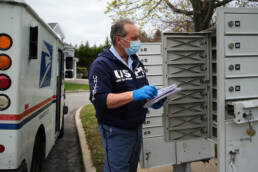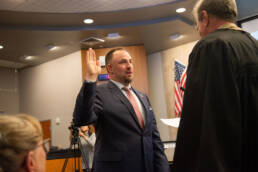Fighting for Women’s Rights Two Years After the Fall of Roe v. Wade By Senator Catherine Cortez Masto
This month marks two years since the Supreme Court overturned Roe v. Wade. In the aftermath of that harrowing decision, we’ve seen the anti-choice rights work overtime to roll back women’s rights even further. They’re not only banning abortion access in states across the country, they’re trying to stop women from traveling out-of-state to get the health care they need, and they’re coming after birth control and in-vitro fertilization (IVF). It’s outrageous that our daughters and granddaughters now have fewer rights than we did.
These anti-choice politicians claimed that overturning Roe was a “states’ rights” issue, but now they’re taking their attacks to the federal level. This year, the Supreme Court will decide on banning abortions even in the case of an emergency and restricting access to the abortion pill, mifepristone – the most common abortion method in the United States. We have a law in this country that hospitals that receive federal funding are required to provide medical care to stabilize a health emergency, including performing an abortion. Earlier this year, I submitted a brief to the Supreme Court urging the justices to reaffirm that law, not ignore it, in their decision. In the case of mifepristone, we’re talking about an FDA-approved drug that is safe and effective, and women everywhere should have the opportunity to access it. That’s why I joined a brief to the Supreme Court in support of protecting access to mifepristone, and why I repeatedly pushed pharmacies like CVS and Walgreens to ensure they made mifepristone available to women throughout Nevada. I am proud that as of April, mifepristone is now on pharmacy shelves across our state. All this progress could be at risk if the Supreme Court takes steps to limit access to this critical medication.
Unfortunately, anti-choice Republican lawmakers aren’t stopping there. Some of my colleagues are hard at work in the Senate to restrict women’s health care. I supported legislation to protect access to IVF, which millions of women and families rely on to have children, but extremist Republicans in the Senate blocked the bill from passing. On top of that, anti-choice politicians have proposed a Senate bill that would ban abortion nationwide, which would overrule our law in Nevada to protect the right to abortion.
These assaults on our rights are unconstitutional and dangerous, and we don’t want them in Nevada. I stand with the vast majority of Nevadans – Democrats, Republicans, and independents – who believe that a woman’s health care decisions should stay between her and her doctor. Politicians should have no control over a woman’s body, and I’m going to keep fighting to protect women’s access to health care in Nevada and across the country. That includes standing alongside my pro-choice colleagues committed to defending against any efforts in the Senate to enact a federal abortion ban. It also includes continuing to push for legislation to restore women’s essential health care and our bodily autonomy.
Last year, I introduced the Reproductive Health Patient Navigator Act with some of my colleagues to help women – including those in anti-abortion states – access reproductive health care. This bill would support organizations across the country, like community health clinics in Nevada, that make it easier for women to access vital healthcare resources and services, regardless of what state they live in.
It’s also been a priority of mine to ensure that women have access to birth control. Comprehensive coverage for contraception is crucial for the health and autonomy of women in Nevada. Last year, after Opill, the first-ever over-the-counter birth control pill, was approved by the U.S. Food and Drug Administration (FDA), I pushed its manufacturer to distribute the medication at an accessible price widely. Opill is now available online and in stores across the country. The reality is that for many women, especially those with the tightest budgets, true access means affordability.
I trust women, and I don’t understand why anti-choice politicians don’t. As we remember the day two years ago when Roe v. Wade fell, what I do know is that I will never stop fighting to safeguard women’s rights against these extremists.


























